Last month we hosted our first Gigonomics Lunch and Learn event where your fellow members who attended learned about the government’s role in the gig economy. We thought it would be beneficial to the members who were not able to attend to review some of the key points and takeaways from the discussion.
 First, it is important to understand that we focused on local and state government here in Washington State. We see that governments in our state are leading the nation in regulating the gig-economy in ways no one thought possible in 2015 when Drive Forward was founded. What is even more crucial is the regulations so far are preserving what Drive Forward members have been advocating for from the beginning, independence and flexibility.
First, it is important to understand that we focused on local and state government here in Washington State. We see that governments in our state are leading the nation in regulating the gig-economy in ways no one thought possible in 2015 when Drive Forward was founded. What is even more crucial is the regulations so far are preserving what Drive Forward members have been advocating for from the beginning, independence and flexibility.
Before getting into specific regulations that have been newly adopted both locally and statewide, we should understand that these regulations take form in two major areas of government, consumer protections and labor standards. Consumer protection regulations have centered around insurance requirements, price gouging during emergencies, licensing, safety, and billing transparency. While consumer protections are important, the effects they have on you, the contractor, are more inconvenient than burdensome. For example, the King County rideshare licensing scheme is a pain to most drivers because it only serves to add a barrier to become or continue being a rideshare driver. However, regulators view this scheme as a consumer protection as it provides riders a sense of safety that government has licensed the driver and they have a place to lodge a complaint that isn’t the app company.
While consumer protections are a necessary inconvenience, labor standards regulations are more concerning. This category often includes regulations on discrimination, deactivations, and minimum earnings. Over the last three years the state legislature and the Seattle City Council have been continually active in adopting new labor standards affecting both the rideshare and app-based delivery industry. Starting in 2020, the City of Seattle adopted its Fare Share Ordinance which sought to regulate many facets of rideshare including, a minimum earning standard, paid sick time, deactivation review, as well as other labor protections. However, most aspects of this ordinance became mute when the state legislature passed statewide rideshare regulations in 2022 and expanded them even further this year.
In their new regulations the State of Washington barred local and county governments from expanding regulations and even nullified some existing local regulations. Included in the new state regulations are a minimum earnings standard, paid sick time, deactivation reviews, and many other protections. In the picture below you can see a more complete list of those protections.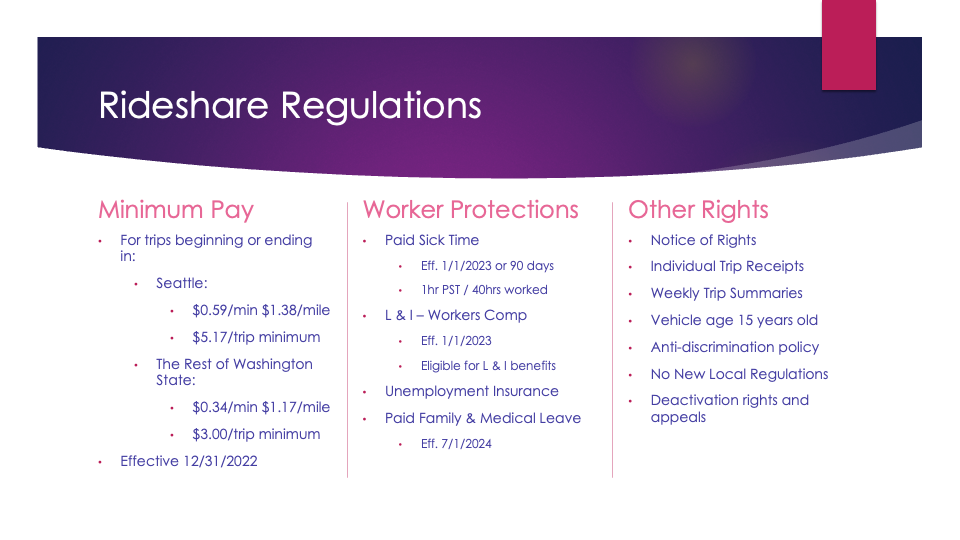
Continuing from their Fare Share Ordinance success, the City of Seattle began establishing a regulatory framework for app-based delivery a services. In May 2022, the city adopted a minimum earning standard for app-based delivery contractors taking effect in January 2024. In March of this year the city also adopted Paid Sick and Safe Time for app-based delivery contractors. Currently the City Council is working on a deactivation review ordinance that will cover all app-based delivery and service providers, excluding rideshare. Below you can see what is included in these City of Seattle regulations, however, we believe these will be short lived as it is expected the State of Washington will enact their own regulation which could preempt these city rules.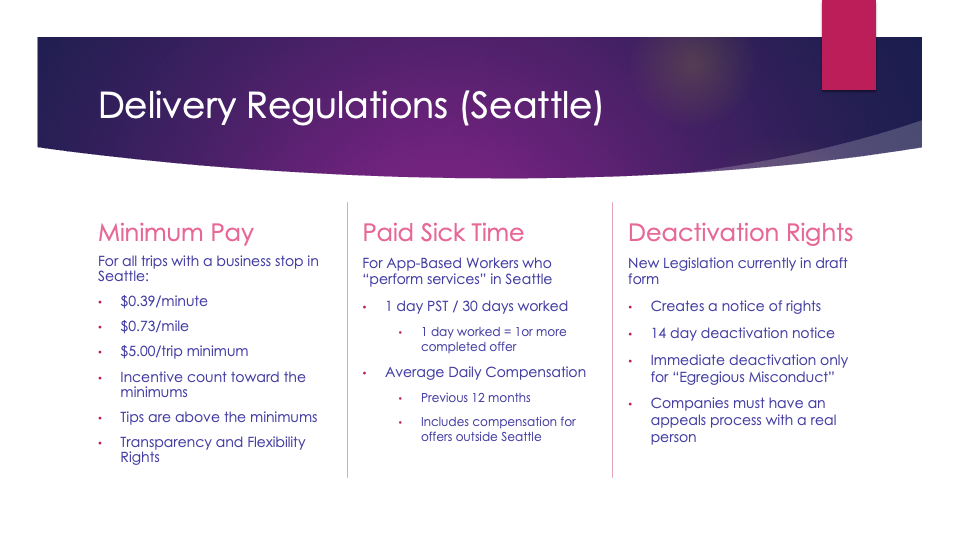
It is also necessary to understand the impact these regulations have on the industry and on independent contractors like our members. These policies certainly mean higher per trip payments to app-based contractors, better protections, and no loss of income if you get sick, but, the increased cost to the app companies by offering these benefits and higher payments to drivers means increased pricing to consumers. Since the new minimum earning standard for rideshare went into effect in January 2021, we have seen a much slower rate of recovery from pandemic lows in Seattle than the rest of the nation. While this drop in demand is caused by a combination of factors, such as more people working from home and a large decrease in business travel post pandemic, higher prices to cover these increased labor costs cannot be ignored nor dismissed as a factor. We believe this same dynamic may occur in the delivery app market when the new Seattle regulations take effect in January 2024.
Government, and the regulations it adopts in the gig-economy can have profound influence on industry and its marketplace. It is good to understand that while some regulations carry negative effects like decreases in trip volume and higher consumer pricing, it is often offset by positive benefits including workers compensation, unemployment insurance and paid sick time for gig contractors. Drive Forward feels that a temporary reduction in volume and corresponding flat earnings is well offset by the new safety nets now available to gig-contractors. We believe the markets will continue to recover either through new growth or a return to pre-pandemic consumer patterns, and within a few years most gig contractors will see tangible increases in earnings and still enjoy the benefits brought forth through these new government regulations.
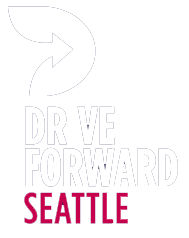
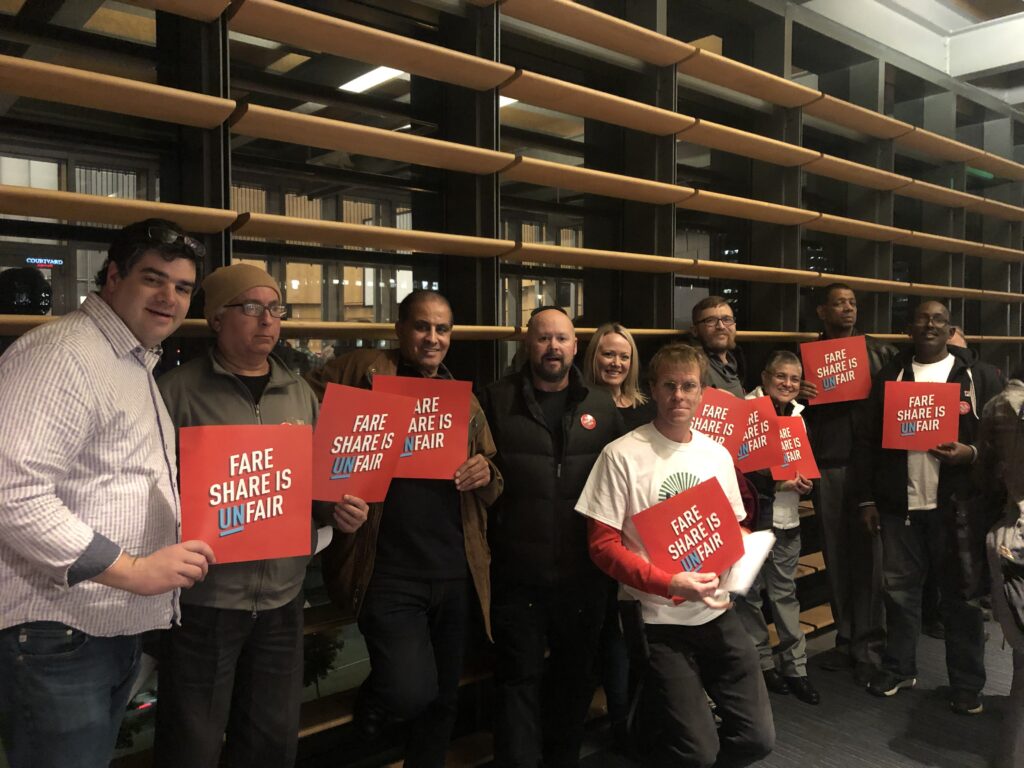
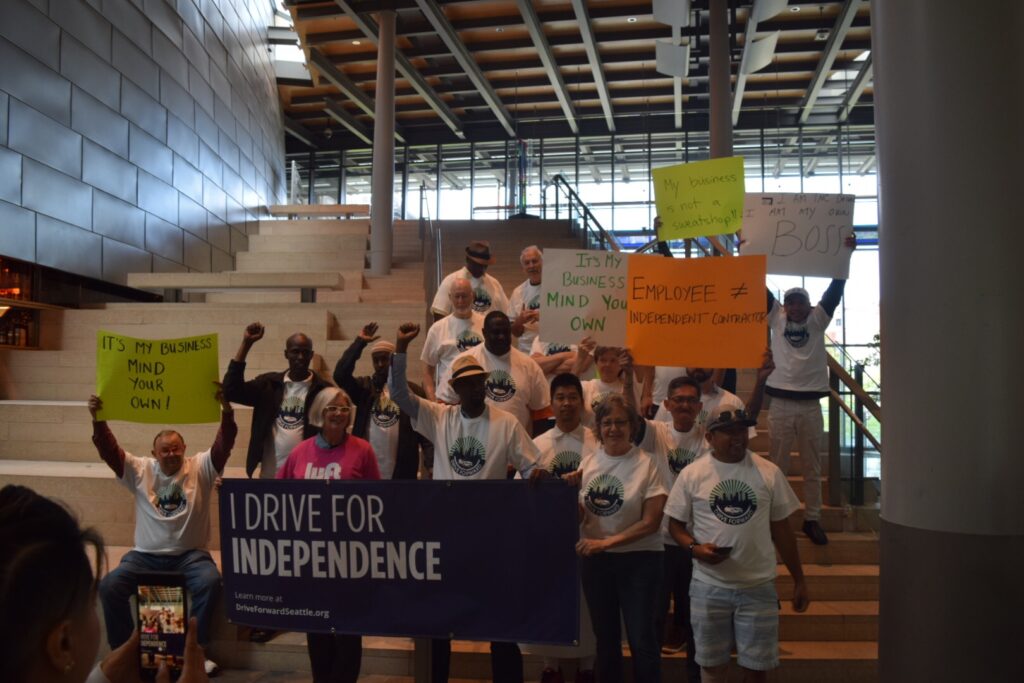
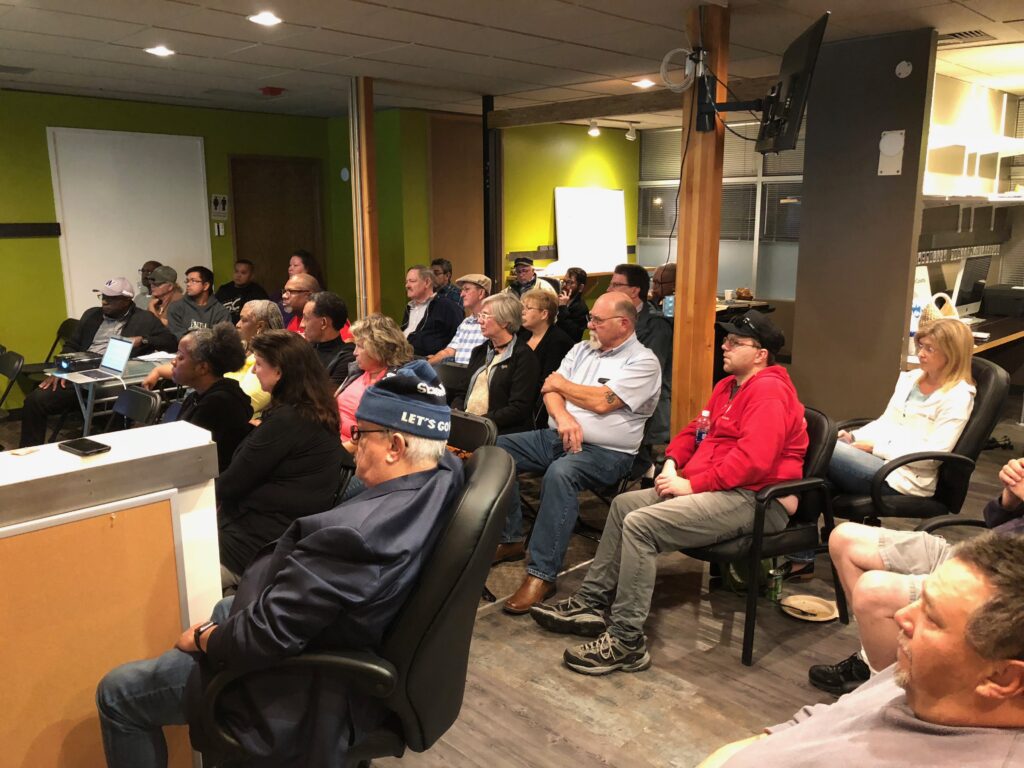

Recent Comments